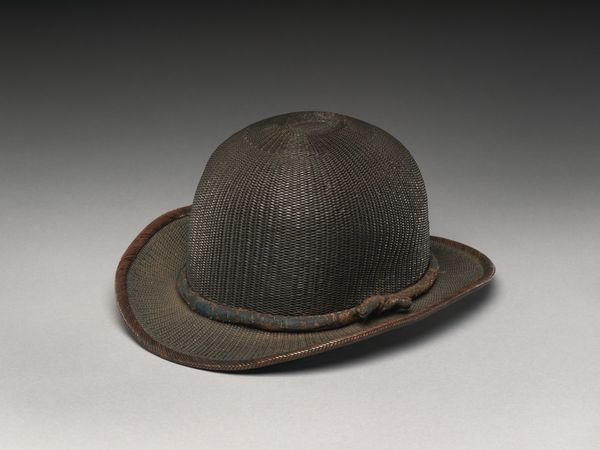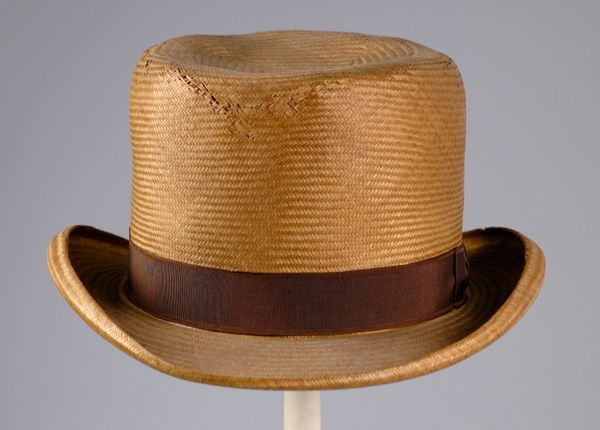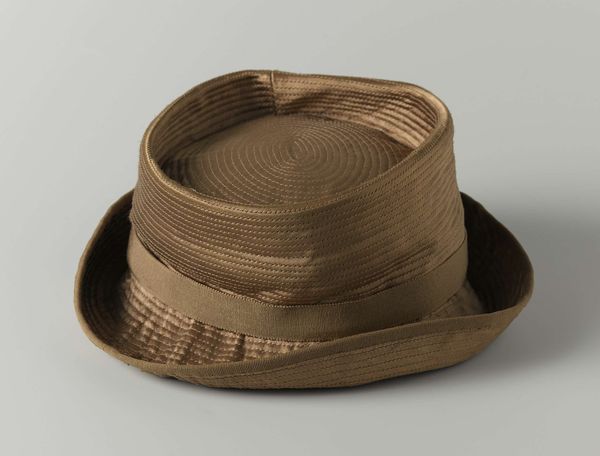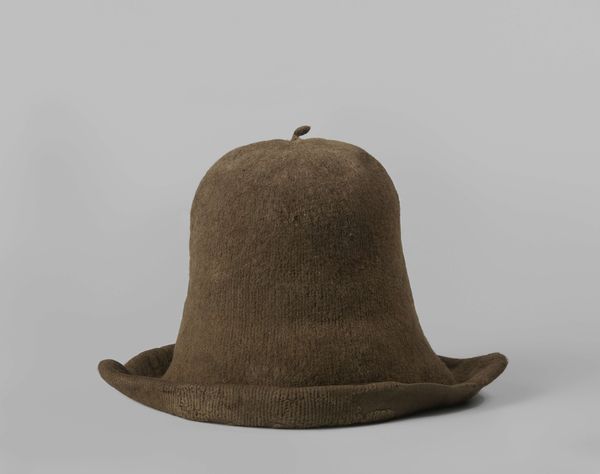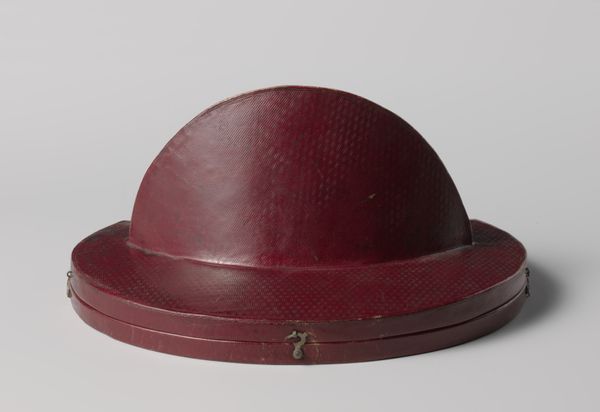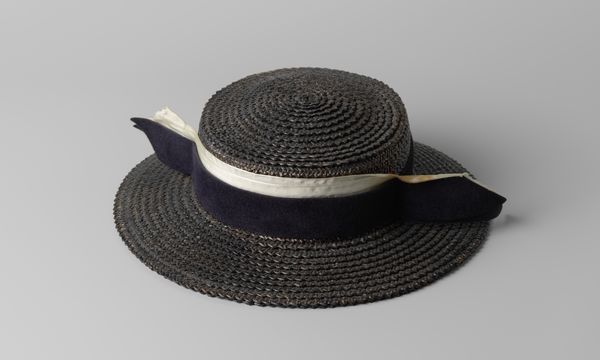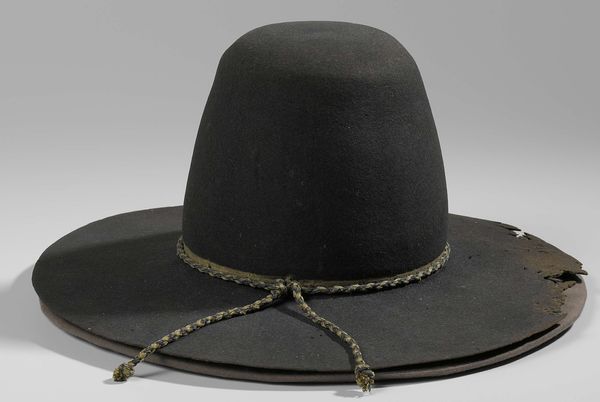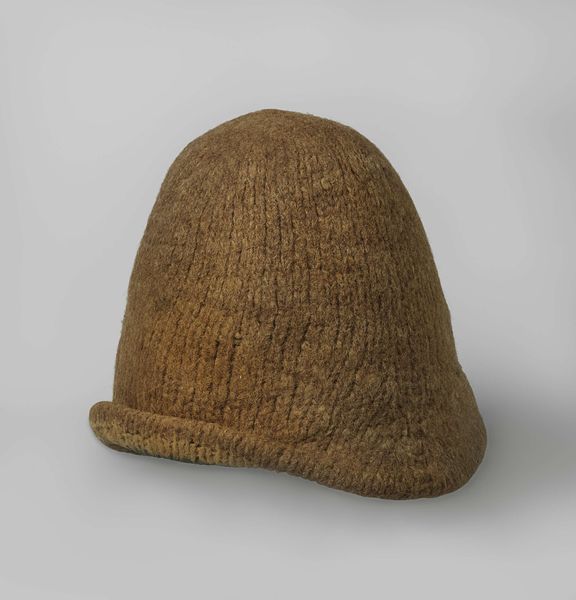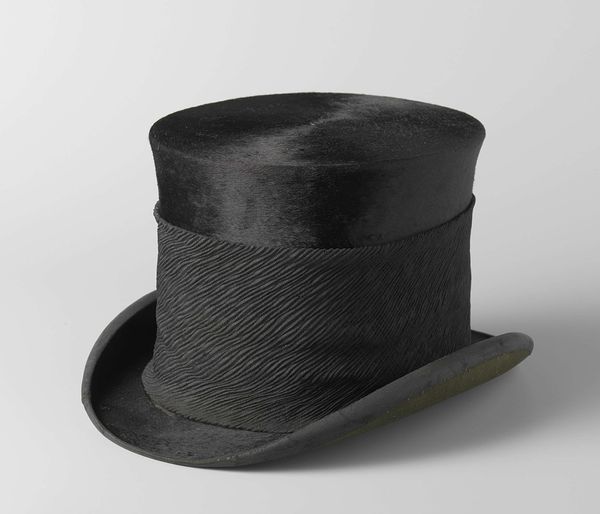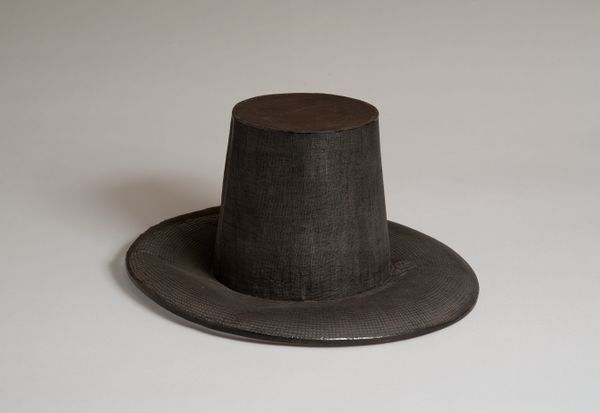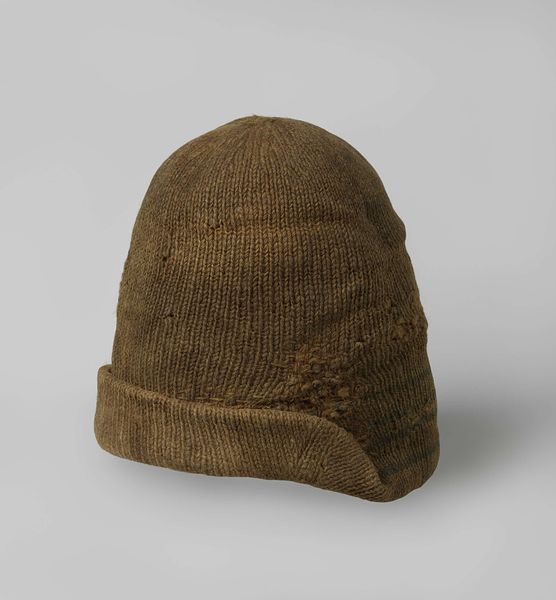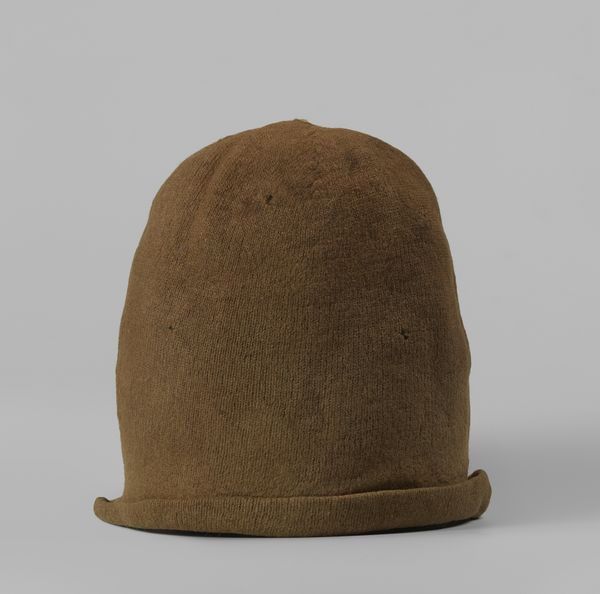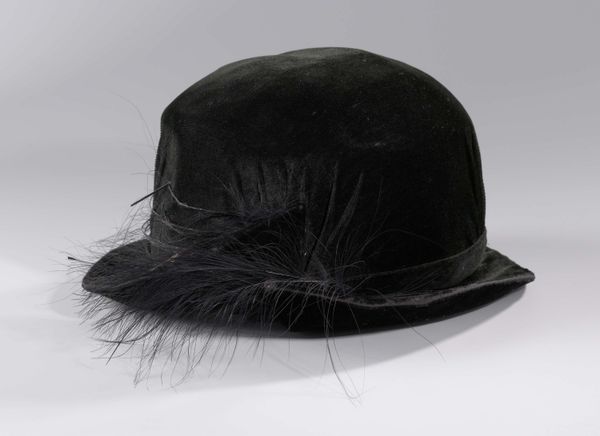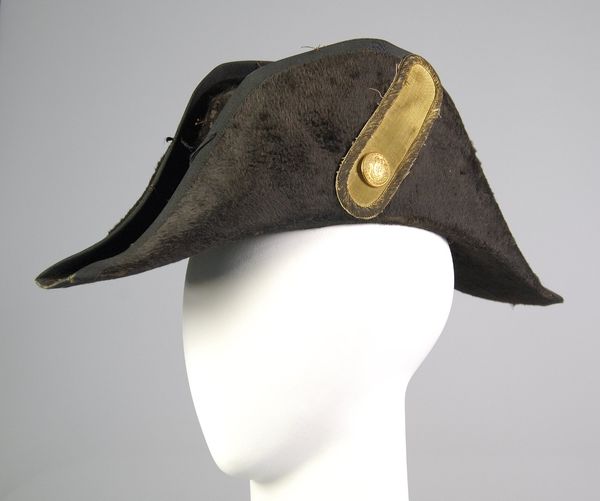
#
studio photography
#
fashion mockup
#
product fashion photography
#
clothing promotion photography
#
japan
#
clothing photography
#
wearable design
#
product mock up
#
clothing photo
#
design mock up
#
clothing design
Dimensions: 5 1/4 × 9 3/8 × 11 5/16 in. (13.34 × 23.81 × 28.73 cm)
Copyright: Public Domain
This bowler hat was made in Japan in the nineteenth century by Hayakawa Shōkosai I, using only woven bamboo. The choice to render this most ubiquitous symbol of Western, capitalist culture in such a humble material is remarkable. Note how the inherent qualities of bamboo – its lightness, flexibility, and capacity to be split into fine strands – have been exploited here. The hat is meticulously woven, with a tight, even texture that mimics the look of felt or wool. But the slight irregularities in the bamboo, and the subtle sheen of its surface, give the hat a warmth and tactility that a machine-made version could never achieve. The labor involved in creating this hat would have been considerable. Each strand of bamboo had to be carefully selected, prepared, and woven into place by hand. We can think of this object as a commentary on the rise of industrial capitalism, with handcraft offering a compelling, and artful, alternative. It’s a reminder that the way things are made matters just as much as what they look like.
Comments
minneapolisinstituteofart about 2 years ago
⋮
A favorite accessory of well-known Japanese kabuki actors such as Ichikawa Danjurō IX (1838–1903), bowler hats made by the bamboo artist Hayakawa Shōkosai I became fashionable in the Meiji period (1856–1912), a time that saw new exposure to non-Japanese cultures and the transformation of fashion choices. By the late 1800s, urban men had all but abandoned the topknot favored during the preceding Edo period (1603–1868) and were wearing their hair short and covered with hats. The ensemble of a hip Tokyoite around 1890 might consist of a more or less traditional kimono, wooden clogs instead of straw sandals, and a novel bowler hat fashioned from rattan and bamboo.
Join the conversation
Join millions of artists and users on Artera today and experience the ultimate creative platform.
